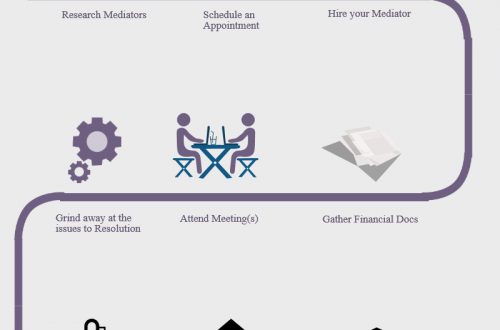Divorce Mediation – Tips For Choosing the Right Mediator

Divorce Mediation is a great way to get a settlement that works for both you and your spouse. However, you have to make sure that you are working with the best professional for the job. So, here are some tips for choosing the right mediator.
Separation vs divorce
If you are getting a divorce, there are plenty of options to choose from. One option is to work out a separation agreement before filing for divorce. This will make the process less stressful. It also helps prevent confusion.
Divorce is a serious matter, and it can affect the entire family. It’s important to get support from friends and family. During a separation, you should not be left to make decisions alone. Having a seasoned mediator on your side can help ensure a favorable outcome.
Separation agreements can be the perfect solution for many couples. They provide a chance for you and your spouse to reflect on your relationship and move on. In addition, it can be less stressful than a divorce.
When working out a separation agreement, you’ll need to decide how to handle your health insurance coverage. Many social security benefits will be terminated during a separation. Depending on the circumstances, you may or may not be able to maintain your benefits.
Costs
Divorce mediation is a process that helps parties resolve their disputes. It is conducted outside of court and involves the help of a neutral facilitator. The mediator does not provide legal advice, but rather encourages the participants to reach an agreement. This can be beneficial because it can help couples save time and money.
Mediation can be used to settle property division, child custody, alimony and other issues. Couples who have had a history of domestic violence should seek legal advice from a lawyer before proceeding with mediation.
If a couple cannot agree to an agreement, they will have to go to court to settle the remaining issues. Depending on the size of the case, this can cost thousands of dollars. However, divorce mediation can help cut down on the costs involved.
Usually, each party pays half of the total cost of mediation. These costs include the court fees, the filing fee and the cost of the mediator.
Confidentiality
Divorce mediation is a way to settle all of your divorce issues without going to court. In fact, the process can be quite fast. It keeps your resentments in the background, and it can also protect you and your children. The bottom line is that you need to trust the mediator.
While there are rules that govern confidentiality during mediation, there are exceptions. For example, if there is an actual criminal threat, the mediator may be required to report the information to the police. And, if the threat is credible, the mediator may have to report it to the court.
If a court does require the disclosure of mediation information, all parties have to waive their privilege. However, they can waive their privilege if they have a written agreement. Typically, these documents are sealed. Examples of the kinds of documents sealed are bank account details, health records, and information about domestic violence.
A mediator’s role in divorce mediation is to balance the negotiation power of the parties. As a result, he or she is expected to know the main sources of conflict. He or she can then prompt the parties to discuss the applicable law. This will help ensure that everyone is on the same page.
Making a settlement that works
If you are looking for an effective way to settle a divorce, mediation can be a great option. It’s less expensive and takes a lot of stress off of both parties. However, there are some things you should keep in mind.
First, you should know that mediation is not a one-size-fits-all solution. Depending on the needs of each party, a successful settlement can take a few sessions. Often, it takes several meetings for the financial documents to be assembled and for a comprehensive understanding of the situation.
Once the financial information is assembled, the mediator will help the parties to outline their goals. These goals may include the division of debts and assets, child custody, child support and alimony.
The mediator’s job is to help the couple to find solutions that work for everyone involved. This means identifying the goals of both parties, then facilitating a dialogue that helps the two reach a mutually beneficial settlement.
As part of the mediation process, the mediator will ask each party to provide a Schedule of Assets and Debts. The schedule will list all assets and debts, including real estate, vehicles, shared retirement funds and timeshares.



